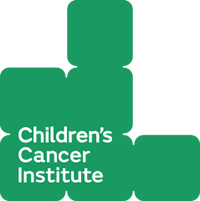Prof Michelle Haber, Prof Murray Norris
Applications accepted all year round
Competition Funded PhD Project (Students Worldwide)
About the Project
Despite intensive treatments the majority of children with high risk neuroblastoma still die from disease, and surviving patients suffer from lifelong morbidities. Therefore new and safer therapies are urgently needed.
Amplification of the MYCN oncogene occurs in approximately 20% of neuroblastomas and is a powerful marker of aggressive disease and poor outcome. Since MYCN itself is pharmacologically difficult to target, an alternative approach is to target downstream pathways necessary for tumour maintenance and progression. One such pathway is the polyamine pathway. Polyamines are highly-regulated essential cations that are elevated in rapidly-proliferating tissues. Ornithine decarboxylase (ODC1) is the first and rate-limiting enzyme in polyamine biosynthesis, and high expression is highly predictive of poor outcome in neuroblastoma. In addition, ODC1 is a well-characterised transcriptional target of MYCN. We have recently shown that MYCN directly and positively regulates all of the other genes of the pathway involved in maintaining high polyamine levels, but negatively regulates those responsible for polyamine catabolism.
Targeting polyamine metabolism through ODC1 inhibition has long been an attractive approach for cancer therapy, and the first clinically approved ODC1 inhibitor to reach the market was difluoromethylornithine (DFMO). However, despite promising preclinical testing, early phase clinical trials in adult cancers were disappointing. DFMO treatment resulted in the activation of compensatory mechanisms, such as increased polyamine uptake from the bloodstream and tumour microenvironment, which counteracted the effect of inhibiting ODC1. Therefore to successfully deplete intracellular polyamines, multiple steps in the polyamine pathway need to be targeted.
We have demonstrated that neuroblastoma is particularly sensitive to polyamine depletion. In neuroblastoma mouse models, DFMO was found to significantly extend survival and to synergise with chemotherapeutics. Based on our findings, a clinical trial combining DFMO with conventional chemotherapy and celecoxib (an inducer of the catabolic arm of the polyamine pathway), is currently underway. Additional experiments in our transgenic mouse model suggest that combining DFMO with compounds that target other steps of the polyamine pathway will further improve the anti-tumour response. Approaches include inhibiting polyamine uptake, using polyamine analogues, and combining DFMO with compounds targeting metabolites upstream of the polyamine pathway.
The aim of this PhD is to identify compounds that can deplete polyamines, and to determine which combinations are optimal. We believe this is an exciting and powerful therapeutic strategy for the treatment of neuroblastoma.
PhD students at Children’s Cancer Institute are enrolled through the UNSW Faculty of Medicine, School of Women’s and Children’s Health, Centre for Childhood Cancer Research (Program code 1825, Childhood Cancer).
Funding Notes
Students must obtain a scholarship that will cover living expenses and tuition fees.
For information on the UNSW application process (including scholarships) visit their website. https://research.unsw.edu.au/how-apply-enrol-research-degree
Additional support
A top-up supplementary award of $6,000 per annum to students who have been awarded a competitive scholarship. This will be awarded to students where the scholarship is equivalent to an Australian Postgraduate Award (RPA) or University Postgraduate Award (UIPA).
The Josee Hilton PhD Excellence Award is a competitive top up scholarship of $10,000 per annum offered to our top ranking new PhD student annually.

 Continue with Facebook
Continue with Facebook

